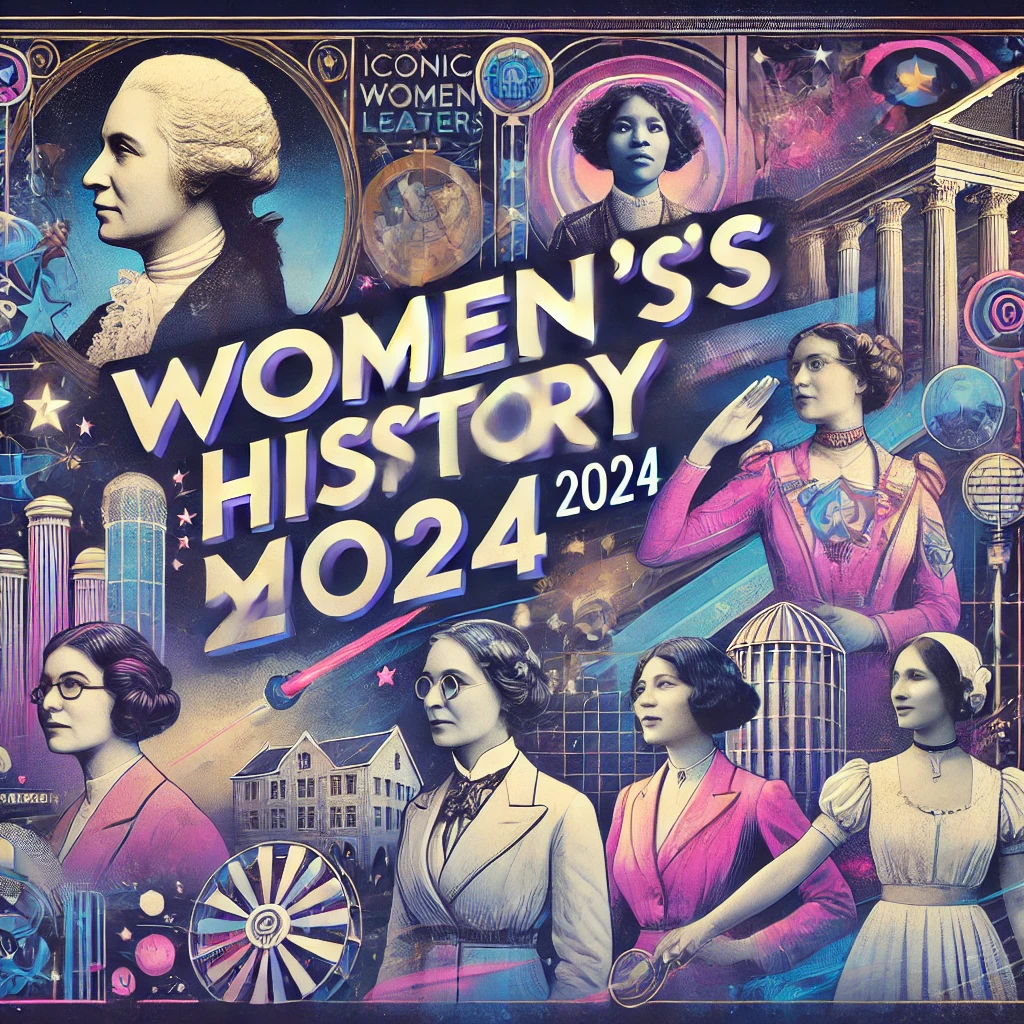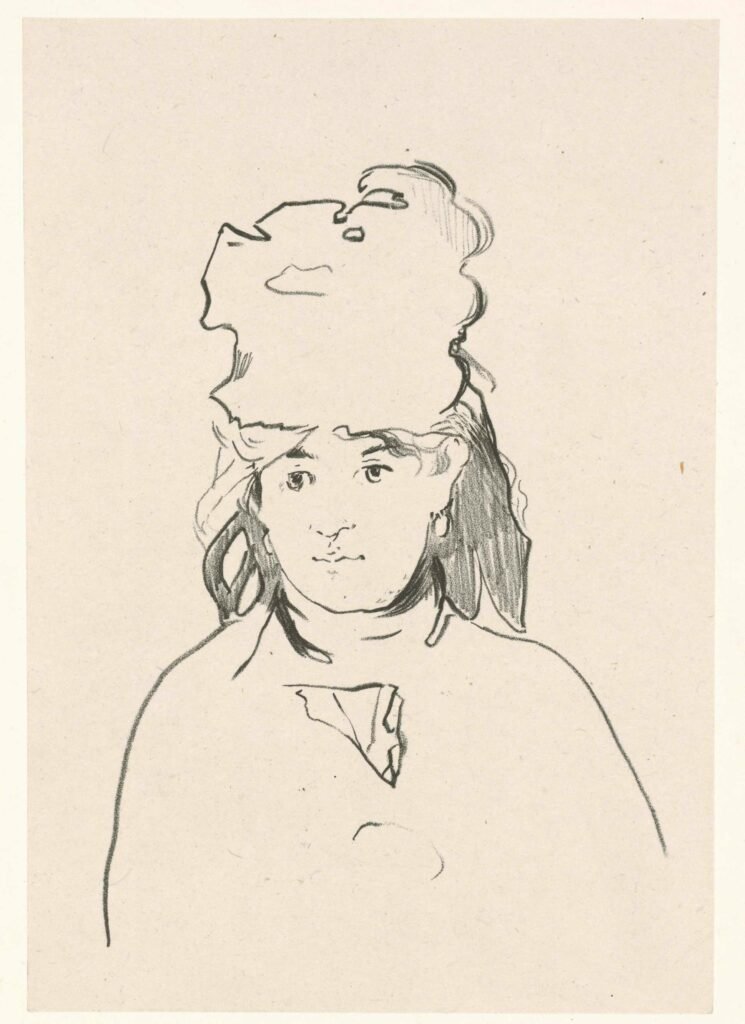
Introduction to Women’s History Month 2024
Women’s History Month, celebrated annually in March, is a time dedicated to recognizing the contributions and achievements of women throughout history. Originating in the United States, Women’s History Month began as a week-long celebration in 1981, before expanding to a month-long observance in 1987 following a petition by the National Women’s History Project. This month serves as an opportunity to highlight the integral role women have played in shaping societies, breaking barriers, and inspiring change across the globe.
The theme for Women’s History Month 2024 is “Celebrating Her Legacy, Empowering Our Future.” This year’s theme underscores the importance of honoring the remarkable legacies of women who have paved the way for progress and empowerment. By reflecting on the achievements and resilience of trailblazing women, we can draw inspiration and motivation to support and uplift future generations of girls and women. This focus on both historical and future impacts is critical in ensuring that the strides made towards gender equality continue to advance.
Women’s History Month is recognized worldwide, with various countries participating in their own unique ways. In the United States, events include educational activities, panel discussions, and cultural exhibitions that showcase women’s achievements in different fields such as politics, science, literature, and the arts. Similar observances take place globally, with international initiatives further highlighting the universal importance of women’s contributions to society. These celebrations are instrumental in raising awareness about the ongoing struggles for gender equality and inspiring action towards creating a more inclusive and equitable future.
In essence, Women’s History Month 2024 not only looks back at the indelible marks left by influential women but also calls for collective efforts to empower female voices in the future. By doing so, we can continue to build a world where every woman and girl has the opportunity to thrive and make her mark.
Notable Women in History: Pioneers and Trailblazers
The annals of history are replete with the extraordinary contributions of pioneering women who have left indelible marks on society. Their groundbreaking achievements across politics, science, arts, and social justice have not only shaped their respective fields but also paved the way for future generations. Among these luminaries are figures such as Marie Curie, Harriet Tubman, Clara Barton, and Marie Stopes—each of whom epitomizes determination, innovation, and resilience.
Marie Curie, a distinguished physicist and chemist, remains a towering figure in the scientific community. Her discovery of radioactivity, for which she won two Nobel Prizes, revolutionized the field of science and laid the groundwork for advances in both medicine and technology. Marie Curie’s relentless pursuit of knowledge and her contributions to cancer research continue to resonate within scientific circles, inspiring countless women to pursue careers in STEM fields.
Harriet Tubman, a key figure in the abolitionist movement, epitomizes bravery and selflessness. As a conductor on the Underground Railroad, she led numerous enslaved individuals to freedom, risking her own life in the process. Her strategic acumen and unwavering commitment to justice have left a profound impact on civil rights activism, underscoring the importance of fighting for equality and human rights.
In the realm of healthcare, Clara Barton stands out as a pioneering nurse and humanitarian. As the founder of the American Red Cross, she revolutionized emergency response and healthcare services. Barton’s innovative methods and dedication to aiding those in need during times of crisis have set a benchmark for humanitarian work, influencing modern medical practices and emergency management strategies.
Marie Stopes, a trailblazer in women’s reproductive health, made significant strides in family planning and sexual health education. Her establishment of the first birth control clinic in Britain marked a pivotal moment in the movement for women’s health rights. Stopes’ advocacy for accessible reproductive healthcare and her contributions to scientific literature continue to empower women worldwide to make informed choices about their bodies and health.
The legacies of these remarkable women transcend their historical periods, providing timeless lessons and inspiration. Their lives and work serve as powerful reminders of the potential for individual impact, encouraging future generations to strive for excellence, equity, and transformative change in their own endeavors.
Modern Leaders: Women Shaping Today’s World
In today’s dynamic world, women leaders are at the forefront of change, driving progress across various sectors. Their contributions are not only profound but also pivotal for shaping a better future. One striking example is Jacinda Ardern, the Prime Minister of New Zealand, whose leadership has been marked by compassion and strength. Ardern’s response to the Christchurch mosque shootings, alongside her decisive handling of the COVID-19 pandemic, has earned her global recognition and admiration.
In the realm of business, Indra Nooyi, former CEO of PepsiCo, stands out as a trailblazer. Under her leadership, PepsiCo saw remarkable growth, and she was instrumental in pushing forward the company’s focus on sustainability and health-conscious products. Nooyi’s tenure is a testament to how visionary women can transform and lead global enterprises effectively.
Technology is another field where women continue to make significant strides. Sheryl Sandberg, the COO of Meta Platforms (formerly Facebook), has been a powerful advocate for women in leadership through her best-selling book “Lean In.” Her initiatives at Meta have not only spurred the company’s growth but have also highlighted the importance of gender equality in the workplace.
From the sphere of activism, Malala Yousafzai’s name resonates on a global scale. As a young advocate for girls’ education and the youngest Nobel Prize laureate, Malala’s dedication to her cause has inspired millions. Her ongoing efforts to ensure education for girls worldwide underscore the critical role activists play in driving socio-cultural transformations.
These contemporary leaders—Jacinda Ardern, Indra Nooyi, Sheryl Sandberg, and Malala Yousafzai—exemplify the multitude of ways women are shaping today’s world. Their achievements and continuous efforts serve as a beacon of inspiration, motivating future generations to strive for excellence and equity in all domains of life.
Educational Initiatives: Empowering the Next Generation
The empowerment of young girls and women through education is crucial for fostering gender equality and creating a future where females are equally represented in all fields. Various educational initiatives have been established to support this objective, focusing on areas like STEM education, scholarships, mentorship programs, and advocacy groups.
STEM (Science, Technology, Engineering, and Mathematics) education is particularly significant in breaking gender stereotypes and opening new opportunities for young women. Organizations such as Girls Who Code play a pivotal role in encouraging girls to pursue careers in technology by providing resources, community support, and hands-on learning experiences. Similarly, initiatives like the Malala Fund advocate for global education, particularly targeting regions where girls’ access to education is limited.
Scholarship programs also play an essential role in empowering women by removing financial barriers that often hinder their educational pursuits. Many institutions now offer scholarships specifically for women in various fields, particularly in STEM disciplines. These financial aids not only alleviate the burden of tuition costs but also symbolize a commitment to fostering diversity and inclusion within academic spaces.
Mentorship programs further supplement these educational efforts by providing young women with role models and guidance. These programs connect female students with industry professionals who can offer advice, share experiences, and help navigate career paths. Mentorship is fundamental in building confidence and providing the networks necessary for personal and professional growth.
Advocacy groups are equally vital in the fight for gender equality in education. These groups work tirelessly to influence policies, raise awareness, and mobilize resources to support female education. They strive to create an inclusive environment where every girl has the opportunity to learn and succeed, regardless of her background.
Together, these initiatives contribute significantly to empowering the next generation of women, ensuring they have the knowledge, skills, and support needed to navigate and succeed in an increasingly complex world. By fostering gender equality in education, we not only honor the legacy of trailblazing women but also lay the groundwork for an empowered and equitable future.
Cultural Celebrations: Honoring Women’s Contributions
Women’s History Month provides an opportunity for diverse cultures and communities worldwide to pay tribute to the remarkable achievements of women. Across the globe, this month encourages a celebration of women’s multifaceted contributions through various activities, ranging from exhibitions and public lectures to film screenings and community gatherings.
In the United States, museums and cultural centers often host specialized exhibitions showcasing the accomplishments of women throughout history. These displays not only spotlight individual trailblazers but also provide educational resources that emphasize the ongoing struggles and triumphs of women in various fields. Prestigious institutions like the Smithsonian and the Metropolitan Museum of Art frequently feature prominent women artists, scientists, activists, and writers.
Public lectures and academic symposia are another cornerstone of the month’s celebrations. Universities, libraries, and community centers collaborate to organize talks by feminist scholars, historians, and contemporary women leaders. These events provide a forum to discuss gender equality, women’s rights, and the ongoing efforts to shatter glass ceilings. They also create an environment for young women to engage with their role models, fostering a sense of empowerment and possibility.
Film screenings offer another powerful medium to honor women’s contributions. By showcasing documentaries and biographical films about influential women, communities can access inspiring stories of courage, innovation, and resilience. Many local cinemas and film festivals include a series revolving around female-centric narratives during Women’s History Month. Such screenings often invite post-viewing discussions, lending insight into the protagonists’ lives and struggles.
Community gatherings, including festivals and parades, also play a significant role. For instance, in the United Kingdom, International Women’s Day is celebrated with marches and rallies featuring speeches from prominent female figures, adding a dynamic and unifying element to Women’s History Month.
Across the globe, festivals like Japan’s Hinamatsuri (Doll’s Day) and Russia’s International Women’s Day celebrations provide culturally unique ways to recognize women’s impact. These celebrations often include traditional customs, ceremonies, and public festivities, highlighting how women’s roles are revered in various societies.
Women in Media: Representation and Influence
The role of media in shaping societal perceptions and narratives is both significant and pervasive. Over the past several decades, the portrayal of women in various media forms—film, television, journalism, literature, and social media—has undergone substantial evolution. This transformation has been driven by a conscious effort to depict women in a more diverse and equitable light. It is crucial to acknowledge the strides made in representation while recognizing the challenges that persist in achieving full gender parity.
In the film and television industry, significant milestones have been reached. Historically, women were often relegated to stereotypical roles; however, contemporary media showcases a broader spectrum of female experiences and stories. Platforms like streaming services have amplified voices and narratives that were formerly marginalized. Filmmakers such as Ava DuVernay, Greta Gerwig, and Chloé Zhao have not only garnered critical acclaim but also inspired a new generation of female creators to pursue careers in media.
Journalism has also observed a promising shift. Women journalists have been at the forefront of groundbreaking investigative reporting and storytelling. Figures like Christiane Amanpour, Maria Ressa, and Zainab Salbi have used their platforms to address issues ranging from corruption and human rights to climate change, thereby influencing public opinion and policy. Despite these advancements, the battle against systemic inequalities and biases in newsrooms is ongoing, emphasizing the need for continued advocacy and reform.
Literature has long been a powerful medium for female expression and activism. Authors such as Chimamanda Ngozi Adichie, Roxane Gay, and Margaret Atwood have challenged societal norms and empowered readers through their compelling narratives. Their works do not merely entertain but also provoke thought and spark discussions on gender, equality, and justice.
The advent of social media has democratized content creation, allowing a more diverse range of voices to be heard. Influencers and activists like Malala Yousafzai, Lilly Singh, and Tarana Burke have harnessed the reach of social platforms to advocate for women’s rights and social change. These digital spaces have become vital for fostering community, sharing experiences, and pushing for policy shifts.
In essence, media holds immense power in either perpetuating stereotypes or challenging them. The ongoing progress in representation across different media platforms signals a shift towards a more inclusive future, where women’s voices are not just heard but celebrated and uplifted. As society continues to evolve, it remains imperative to support and champion diverse female perspectives in media.
Corporate Initiatives: Promoting Gender Equality in the Workplace
In recent years, companies and industries have made significant strides in promoting gender equality, diversity, and inclusion within the workplace. These initiatives are not just beneficial for women but contribute to the overall success and competitiveness of organizations. Policies like equal pay, parental leave, and anti-harassment measures have become essential components of corporate strategies aimed at fostering a more inclusive environment.
Equal pay remains a critical issue, and many corporations are taking tangible steps to bridge the gender wage gap. Organizations are conducting regular pay audits to identify and rectify any discrepancies. Companies like Salesforce and Adobe are public examples of firms that have committed to equal pay for equal work, making adjustments as needed to ensure all employees are compensated fairly, irrespective of gender.
Parental leave policies have also seen a transformation, recognizing the need for both mothers and fathers to have adequate time off to care for their newborns. Progressive firms like Google and Microsoft offer extended parental leave, ensuring that employees do not have to choose between their careers and their families. These policies not only support gender equality but also promote a balanced work-life equilibrium.
Anti-harassment measures and creating a safe workplace are paramount. Companies are implementing comprehensive training programs to educate employees about harassment and ensure strict enforcement of anti-harassment policies. For instance, Uber has overhauled its internal policies to safeguard against harassment and foster a more respectful work culture. Regular workshops and anonymous reporting mechanisms are now standard in many organizations to combat harassment effectively.
Corporations like Accenture and IBM are also recognized for their robust gender diversity programs. These initiatives include mentorship opportunities, leadership training tailored for women, and targeted recruitment efforts aimed at increasing female representation in leadership roles. By promoting gender equality and adopting inclusive practices, companies not only enhance their reputation but also drive innovation and economic growth.
Looking Ahead: The Future of Women’s Empowerment
As we reflect on Women’s History Month 2024, we must also cast our gaze toward the future of women’s empowerment. The ongoing movement for women’s rights and gender equality is at a pivotal juncture, marked by significant strides and profound challenges. Emerging trends indicate a growing focus on intersectionality, recognizing that gender inequity often intersects with other social categories such as race, class, and sexual orientation, which must also be acknowledged and addressed.
Technology and innovation offer substantial opportunities for advancing gender parity. The digital age creates platforms where women’s voices can be amplified globally, fostering not only a more inclusive dialogue but also sparking grassroots movements that can lead to policy changes. Technological advancements in fields such as artificial intelligence and big data can also be leveraged to analyze and address gender disparities across various sectors, from the workplace to healthcare.
Despite these advancements, hurdles remain. Structural barriers, societal norms, and legislative gaps continue to impede progress toward full gender equality. Wage gaps, underrepresentation in leadership roles, and gender-based violence are persistent issues that demand comprehensive strategies and sustained advocacy. The COVID-19 pandemic, for instance, exacerbated existing disparities, highlighting the need for resilient and adaptable solutions that address the unique needs and contributions of women.
One promising development is the increasing involvement of men as allies in the quest for gender equality. Recognizing that this struggle is not solely a women’s issue but one that affects society at large, men are stepping up to support and advocate for systemic changes. Collaborative efforts that include diverse voices lead to more sustainable and effective outcomes.
Ultimately, the path forward requires a collective effort. Continued support and active participation from all sectors of society are crucial in ensuring the gains of the past are preserved and built upon. By fostering environments where women can thrive and succeed, we can create a balanced and just world that benefits everyone.






